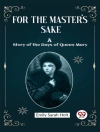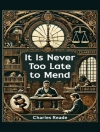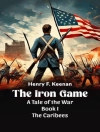In ‚The Downfall‘ (La Débâcle), Émile Zola masterfully captures the chaotic disintegration of the French army during the 1870 Franco-Prussian War. This novel, the 19th installment in his celebrated Rougon-Macquart series, portrays a gripping panorama of conflict through vivid realism and psychological depth. Zola’s characteristic use of naturalism immerses readers in the horrors of war, emphasizing the animalistic survival instincts that emerge amid despair and defeat. The narrative intricately weaves personal narratives with the larger, historical catastrophe, showcasing how the collapse of a societal structure impacts individuals at various social strata. Émile Zola, a pivotal figure in 19th-century literature, is renowned for his commitment to naturalism and his fervent social critique. His experiences as a journalist during the tumultuous political climate of France undoubtedly influenced his perspective on the consequences of war and societal decay. Zola’s personal losses during this period, coupled with his keen observations of human behavior, compel him to illuminate the brutal realities faced by soldiers and civilians alike in ‚The Downfall.‘ ‚The Downfall‘ is a powerful exploration of resilience and tragedy, recommended for readers interested in the intricate dynamics of human nature in times of crisis. Zola’s magnificent prose, along with his unflinching portrayal of suffering, renders this novel not only a historical account but a profound commentary on the human condition. For anyone captivated by the interplay of personal and collective destinies, Zola’s work stands as a significant literary achievement.
Über den Autor
Émile Zola (1840–1902) was a pivotal French novelist and critic often heralded as the foremost proponent of the literary school of naturalism. His influence extended beyond the boundaries of literature into the socio-political sphere, advocating for social justice while challenging the hypocrisies of French society through his writings. Zola’s oeuvre comprises an ambitious twenty-volume series titled ‚Les Rougon-Macquart, ‚ an exhaustive study of a single family under the Second Empire, addressing issues of heredity and environment. His novel ‚The Downfall‘ (‚La Débâcle, ‚ 1892), the nineteenth installment of the series, is a harrowing account of the Franco-Prussian War and the catastrophic collapse of the Second Empire, painting a vivid picture of the disorder and impact of the war on society. Zola’s unique literary style is characterized by in-depth research and a commitment to portraying characters and situations with unflinching realism. His influence has resonated through the decades, solidifying his reputation as an important literary figure who not only entertained but also sought to illuminate the darker corners of the industrializing world. His work remains pivotal in the study of literature and its capacity to effect social change.












